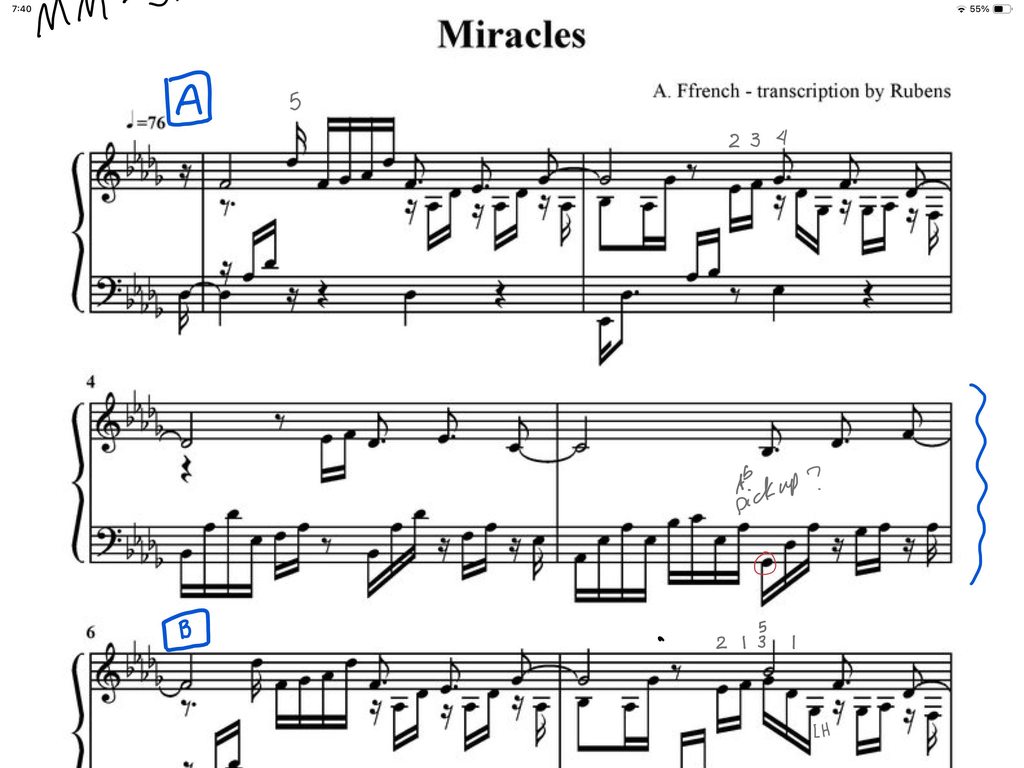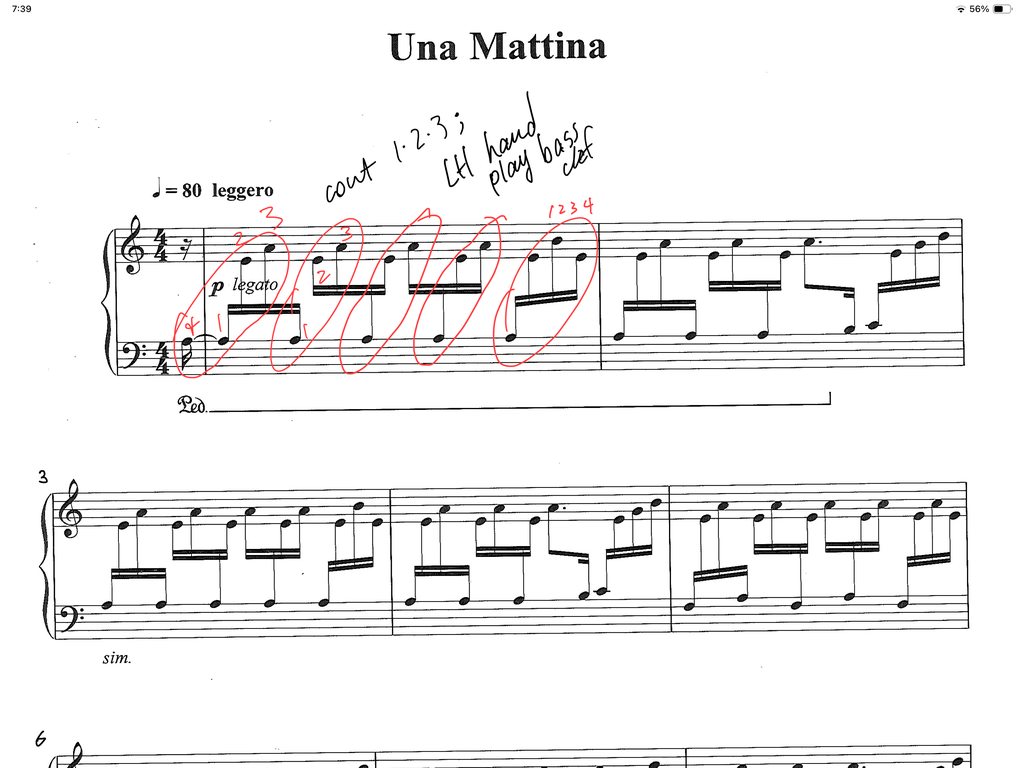twocats Maybe my goal should be to limit myself to one phrase per day when I'm at the piano.
You’ll have to report back about how this goes for you. I know that with pieces that are sort of “in the pocket” of difficulty level for me (not too hard, but challenging enough to be interesting), I would want to press ahead. Or with pieces that are easy for me, I would read through and work on a huge chunk, or the whole piece…. Especially because I’m lazy and reading is easy,I’m finding it hard to force myself to memorize the piece I decided to memorize. 😅
BTW one thing I’m thinking about is the distinction between “learning how to play a piece” and “memorizing a piece.” In watching the video by Greg Niemczuk, it’s earl that he doesn’t need to learn how to play that piece, he just has to memorize it, and then he’ll be working on interpretation, musicality, expression. And with the piece I’m planning to play first in my recital next month, the “easy” piece, I don’t really need to learn how to “play” this piece. (Btw this piece is Wishing, by Ffrench, the first piece in my Journal thread).
But for other music I play, that’s not necessarily the case. For example, some music I struggle with choosing the fingering, or like Miracles (the Alexis Ffrench piece that Rubens transposed for me) I struggled with distributing the notes between the two hands …

or Una Mattina (by Einaudi), I couldn’t play it until after a lesson with my teacher when he showed me a different way to count it. (Of course after that, it felt so easy, I felt like an idiot).
Here’s Una Mattina:

Anyway, I think, for me anyway, all this means is that I should choose the piece to memorize carefully, so that if my aim is to practice memorization as an exercise in and of itself, then I should pick a piece that I only have to “learn to play it,” rather than a piece that I have to “learn how to play.”
Does this make sense??
BTW just writing this post makes me think I really need to be firm with myself and try to memorize the whole piece for Wishing, not just a few sections… Being a “reader” makes me so lazy… 😅